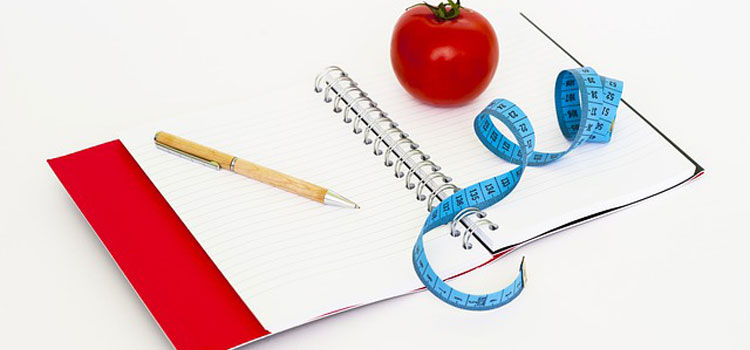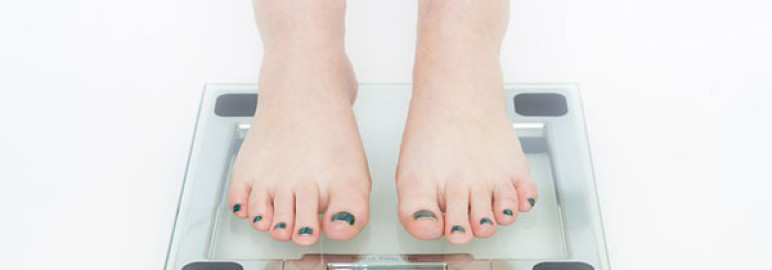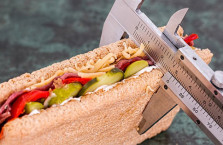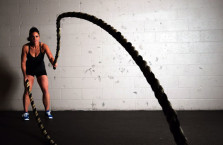Many people struggle with weight loss for many different reasons. Below is a short list of the most common reasons why people stall or quit on their way to achieving their fat loss goals.
1. You’re not eating enough – either too little or too much
The key word here is “enough.” Eating too much is obviously going to prevent you from losing fat…But eating too little? That may seem to be a counter-intuitive statement. What gives?
If you cut Calories too hard while exercising intensely you’ll overwhelm your adaptive abilities and actually end up fatter, as you burn muscle tissue in response to the incredible stress. Muscle is very costly to maintain and when your body isn’t fed properly, it will get rid of anything it doesn’t deem particularly useful. Fat is, unfortunately, more useful in times where energy intake is low; muscle tissue isn’t. This is not a recipe for a good looking body – you’ll actually end up looking “skinny fat.”
Eating “enough” means fueling your body so you can build or retain lean mass and increase performance, while creating just enough of a Calorie deficit to gradually lose body fat. The trick is knowing how to determine an optimal Caloric intake based upon your unique circumstances. Luckily, our coaches can help.
2. You don’t have a plan or a support system

To achieve a goal – fat loss in this instance – you need to take a reliable route to get there, use the tools you have available to you, and (this is a big one) you need to consult people with experience and knowledge that you might not possess. Nearly everyone who’s made their dreams come true will reference the importance of careful consideration, consistent action, the guidance of their mentors, and the support of their peers – they’re universal constants. Without those variables in play, there’s a good chance you’ll encounter more than your fair share of obstacles.
A good fat loss plan should outline basic things like Calorie/macronutrient goals, what kinds of activity you’ll be doing each day of the week, and how long certain phases will last. It shouldn’t emphasize supplements or give you an overly-restrictive list of foods – eating clean is the absence of a plan – nor should it have you doing hours of cardio every day. It should be balanced.
If you’re just throwing stuff out there and seeing what happens, you may see some results but you can’t guarantee a specific outcome by engaging in random behavior.
3. You’re too rigid/restrictive and you hate your diet
When you take an “all or nothing” approach to fat loss, you’re bound to end up face down in a cheesecake wondering how you got there. Contrary to popular belief, people who’re flexible with their diets are the ones with the best overall body composition! If you can’t do it for life, it’s too much and you need to relax on things a bit before you’ve dug your own grave. Regardless of the type of diet you eat or how serious you are about exercise, adherence will be one of the most important factors to consider because real results take time!
4. You’re not logging your food

I get it…Logging food kinda sucks. It’s another thing to keep track of, another worry, and that’s why we firmly believe in doing it only when necessary. When you start a new diet, training program, or come back from vacation, you need to know how much food you’re eating vs. how much you should be eating so you can make quantitative modifications to your nutrition that will result in fat loss without killing your performance.
Take a week or two to log your food and see where you’re at. Are you maintaining your weight with your current diet? Cool – drop some Calories here and there and you should be able to lose fat. Are you losing weight and feeling good? Awesome – you know that dipping below this number will probably be a bad idea. Gaining weight? Again, if you’re tracking your food you have numbers to go by and you can start reducing your Calories a bit to get things under control.
After you’ve established a general idea of how much you’re eating and what you need to do to work towards a goal, you can stop logging food for a while. 3-4 weeks out of a year isn’t a huge inconvenience, but without data you’re taking a shot in the dark and that can set you back months!
5. You’re not prioritizing performance
Increasing your performance is almost always a good indicator that you’re building or preserving lean mass. That means that most of the time, you should be eating to fuel your workouts to increase work capacity – strength, endurance, speed – and spend a few short months each year focused on gradually losing fat while maintaining performance. If you stray too far from that, you’ll probably end up making poor decisions and sabotage your results.
For the original article visit EatToPerform






![10 Super Foods You Must Add In Your Diet [VIDEO]](http://FitPhreak.com/wp-content/uploads/2016/04/2016-04-20_1412-223x145.jpg)






